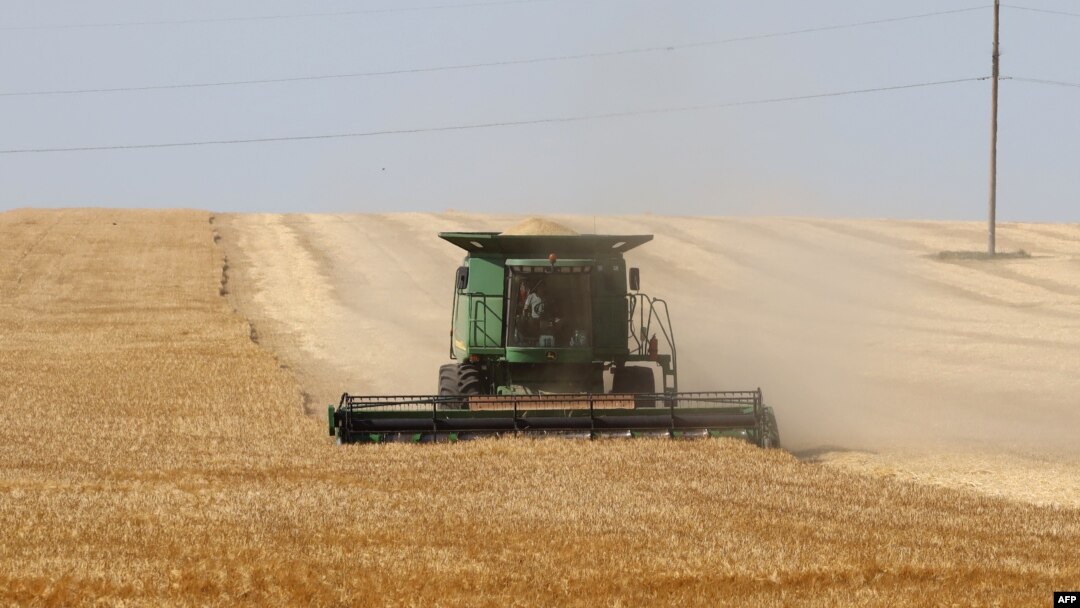Ukraine's foreign minister says Kyiv is ready to export much-needed grain to Africa as soon as Russia lifts its Black Sea blockade. In a U.S.-arranged online briefing to journalists Thursday, he blamed Russia for the global food crisis affecting millions of Africans and called for more African support against Moscow.
Ukrainian Foreign Minister Dymtro Kuleba said his country and Africa need each other to overcome the global food crisis, which he blamed on Russia’s aggression.
“We want to export our agricultural products to you as badly as you want to receive them,” Kuleba said, “and there is only one reason why both ends of this supply chain – which is us and you – cannot benefit from these exports. It’s the Russian blockade of Ukrainian ports as a result of the Russian military aggression against Ukraine.”
Ukraine is a major supplier of wheat, corn and sunflower oil to African countries and, since Russia’s invasion began in February, Africa has faced food and cooking oil shortages that have left an estimated 400 million people on the continent food insecure.
While drought and conflict have also played a role in the food crisis, Kaleba focused on the actions of Russia. He said Russian forces have taken 400,000 tons of grain crops from Ukraine.
“Russians also steal agricultural equipment from Ukrainian farmers – tractors, combine harvesters, and other tools in Donetsk, Kherson, Kharkiv and Sumy regions of Ukraine,” he said.
“Russian forces have riddled Ukrainian fields with mines to prevent farmers from cultivating their crops for years. According to the recent preliminary estimate, about 13 percent of Ukrainian territory has been contaminated by Russian mines and other explosive remnants. This creates threats of a multiyear global food crisis.”
Fred Munene, an agronomist and farmer in Kenya, said Africa, for now, should fight to get the food stuck in Ukraine out and invest in its farm economy to be food secure.
“The short term is getting the food that is already produced,” Munene said. “In the long term, look for other suppliers or industries in Africa that will supply fertilizers and other farm inputs because that’s the biggest challenge.”
Kuleba said Africa can play a role in ending the conflict between the two neighbors.
“African states have a crucial role in this, and many already work together with us to achieve it,” Kuleba said. “African capitals matter and they do influence Russia’s position.”
However, African countries on the U.N. Security Council have been reluctant to pressure Russia based on historical ties to Moscow and current geopolitical concerns.
Hassan Khannenje, head of the Horn Institute for Strategic Studies, said that Africa’s say in the conflict is limited.
“They do not have the leverage outside diplomatic engagement and are trying to appeal to both parties to see the need to unblock the wheat supply which Africa relies on heavily on,” Khannenje said.
Senegalese President and African Union Chairperson Macky Sall is expected to meet with Ukrainian President Volodymyr Zelenskyy in coming days but no firm date has been set.


